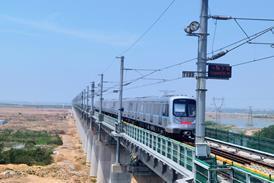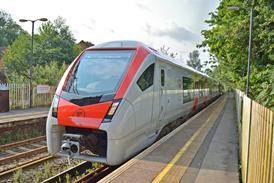IT WOULD BE wrong to call the Great British Experiment in restructuring state-owned railways a failure. Estimates for the year to March 31 show passenger-km up 23% and freight tonne-km up 40% on 1994-95. Four decades have passed since passenger-km on Britain’s main line network last topped 35 billion. Nevertheless, the National Rail Summit launched by Prime Minister Tony Blair on February 25 (p204) marked a defining moment in the worldwide search for the optimum structure to replace the state railway.
Serious flaws have appeared in the fragmented structure created by the Railways Act 1993. This was intended to stimulate competition between operators using tracks, stations and even trains owned by different companies. The impossibility of seven-year franchises sustaining rolling stock renewal has been exposed. Railtrack’s inability to plan and fund expansion of a network faced with long term growth is painfully evident, although the 1999 Network Management Statement due to be published on March 25 was expected to show an increase in projected expenditure over the next 10 years from £17bn to £27bn.
’As it stands today’, Blair told the Summit, ’the railway system simply lacks the capacity to sustain our policies to expand both passenger travel and freight transport by rail. To deliver those policies we must invest - with the lion’s share of that investment coming from the private sector.’
Competition will simply aggravate this challenge, which requires early intervention by the new Strategic Rail Authority - backed by legislation. For example, passenger trains may have to be rescheduled to provide capacity for freight on the same track. Competition and fragmentation are out; partnerships and network benefits are in.
As the SRA labours to put Humpty Dumpty back together again, it is the more astonishing to watch Deputy Prime Minister John Prescott blundering ahead with a ’public-private partnership’ that splits London’s Underground into three networks leased to private infrastructure companies who also provide the trains (p194). LU is to be left in the public sector under the future Mayor of London, with neither having effective control over the ’infracos’. Meanwhile, LU’s Power and Prestige deals ensure that power supplies and revenue collection continue as network activities outside the infracos’ remit. Small wonder that last month’s ’progress report’ reveals next to none in the year since the PPP was launched.




















